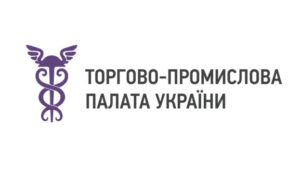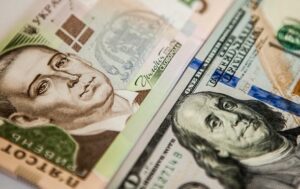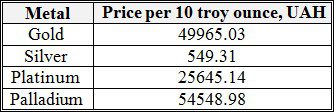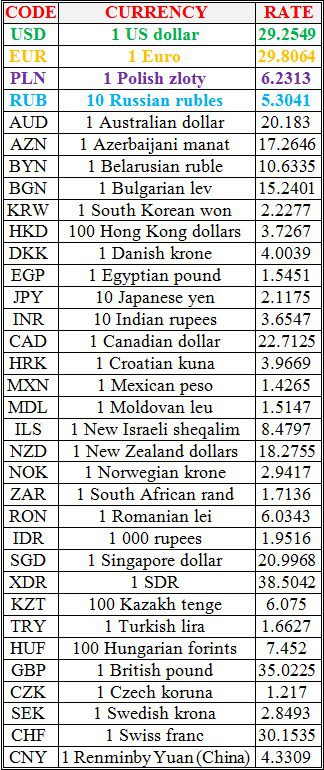
Ukrainian agrarians need urgent support in replenishing working capital, prolonging loans and settling relations with retail chains, because due to the enormous debt to processing enterprises, agricultural producers cannot purchase raw materials and grain from farmers.
A corresponding appeal to Prime Minister Denys Shmyhal with a proposal to hold a joint meeting to find solutions to prevent negative trends in the grain market was sent on July 20 by members of the agro-industrial complex entrepreneurs’ committee at the Chamber of Commerce and Industry (CCI) of Ukraine, according to the website of the organization.
“It has never been as difficult as it is today for farmers. The situation needs state intervention due to a number of problems: there are ultra-low purchase prices, lack of storage facilities, slow logistics, retail debt,” the Chamber of Commerce and Industry quotes its member, first vice- President of the Association of Farmers Viktor Sheremet.
According to the Chamber of Commerce and Industry, due to the blocking of Ukrainian maritime logistics, hostilities, higher fuel prices, shortage of working capital and lower prices for agricultural raw materials, a significant reduction in winter crops for a new crop is expected.
“Probably, the current crop of corn will remain under the snow,” the organization stressed in the appeal.
In addition, this year a serious challenge for farmers will be the purchase of seeds, fertilizers, fuel, the preservation and export of grain, a number of enterprises and farms are expected to go bankrupt due to the loss of access to export products and the challenges facing the agricultural sector of Ukraine.
“Given the threats that complicate the situation on the market, following the results of the discussion of industry problems, the meeting participants decided to appeal to the Prime Minister of Ukraine Denys Shmygal with a request to hold a joint meeting with interested ministries and departments, business representatives, industry associations, donor organizations to consolidate efforts to search for effective solutions to ensure the organization of the harvesting campaign, storage of grain, autumn sowing and activation of exports,” the Chamber of Commerce and Industry concluded.

From 09:00 on July 21, 2022, the National Bank of Ukraine adjusted the official exchange rate of the hryvnia against the US dollar by 25% – from UAH 29.2549/$1 to UAH 36.5686/$1, taking into account changes in the fundamental characteristics of the Ukrainian economy during the war and strengthening of the US dollar against other currencies, according to a message on the NBU website.
“Such a step will increase the competitiveness of Ukrainian producers, bring together the exchange rate conditions for different business groups and the population and maintain the stability of the economy in a war,” the National Bank said.
He stressed that the official exchange rate of the hryvnia against the US dollar continues to be fixed.
“With the high uncertainty caused by the war, a fixed official exchange rate against the US dollar is the main anchor for stabilizing expectations and a key means of achieving the NBU’s priority goals. They are to ensure price and financial stability, which is an important condition for economic recovery,” the regulator explains its position.
Central bank official rates of banking metals as of July 21

One troy ounce=31.10 grams
National bank of Ukraine’s official rates as of 21/07/22

Source: National Bank of Ukraine

More and more investors are pessimistic about the prospects for the global economy and corporate profits, according to the results of a monthly survey of fund managers conducted by Bank of America Corp. (BofA).
According to the results of the July survey, the proportion of respondents who expect the economy to weaken in the next 12 months reached a record 79%, an increase of 6 percentage points (p.p.). The share of investors expecting corporate earnings to worsen over the next 12 months rose by 7 percentage points, also reaching 79%.
Stagflation in the global economy is expected by a record 90% of respondents compared to 83% a month earlier.
The survey, which included 259 investors managing $722 billion in assets, was conducted by BofA last week.
Investors have reduced exposure to risky assets to lows not seen even during the global financial crisis, “completely capitulating” in the face of a bleak economic outlook, BofA said.
The share of stocks in investment portfolios this month fell to the lowest since the collapse of investment bank Lehman Brothers in 2008, the share of cash balances reached 6.1%, the highest since October 2001.
Among the biggest risks, fund managers point to high inflation, a global recession, and a hawkish central bank.
At the same time, the proportion of respondents who expect inflation to slow down next year has reached its highest level since the global financial crisis.
BofA has been conducting surveys of fund managers since 1994.

First Lady of Ukraine Olena Zelenska and First Lady of the United States Jill Biden discussed the National Program for Mental Health and Psychosocial Support, as well as a number of humanitarian projects, during the meeting, the press service of the Office of the President of Ukraine reports.
“As part of her visit to the United States, First Lady of Ukraine Olena Zelenska met with First Lady of the United States of America Jill Biden at the White House. The wife of the Ukrainian head of state was also met on the porch of the White House by US President Joseph Biden and Vice President Kamala Harris. During the event, discussed the National Program for Mental Health and Psychosocial Support, the implementation of which was launched in Ukraine,” the message posted on the website on Wednesday evening reads.
It is noted that for the implementation of the National Program for Mental Health and Psychosocial Support, “expert consultations of foreign, including American, specialists in overcoming the consequences of traumatic situations caused by the war are needed.”
“The first ladies of Ukraine and the United States paid considerable attention to a number of humanitarian projects aimed at alleviating the suffering of people affected by the war. In particular, they talked about the treatment of Ukrainian children in the United States and their prosthetics in American clinics, as well as a number of educational initiatives and assistance to temporary internally displaced persons,” the statement said.
In addition, Zelenskaya met with Douglas Emhoff, the husband of Vice President Kamala Harris.
The meeting, which was held in an expanded format, was also attended by US Ambassador to the UN Linda Thomas-Greenfield, US Chief Medical Officer Vivek Merty, Assistant Secretary of State for Political Affairs Victoria Nuland, USAID First Deputy Administrator Isabelle Coleman, US National Security Council Senior Director for Europe Amanda Sloat.
The First Lady of Ukraine emphasized that “the main thing today is the supply by the United States of Ukraine of powerful precision weapons that will help us protect children and civilians, as well as accelerate victory in the war.”
In addition, Zelenskaya “told about the project ‘The Book of the Executioners of the Ukrainian People’, which collects confirmed data on war criminals from the Russian army.”
The wife of the head of the Ukrainian state thanked the United States for significant efforts in the UN for isolation and deprivation of a seat in the UN Human Rights Council of the Russian Federation, as well as for condemning Russia, and called for further strengthening of sanctions and recognizing the Russian Federation as a state sponsor of terrorism.
On the second day of her visit to the United States, Olena Zelenska had lunch with influential American women.
It was attended by Marcy Kaptur – congresswoman, co-chair of the Ukrainian caucus in Congress; Robin Dunnigan – Deputy Assistant Secretary of State for European and Eurasian Affairs; Dr. Beth van Skak, US Department of State Ambassador-at-Large for Global Criminal Justice, and others.
“The concept of a “strong woman” is the same in Ukraine and in America: a woman takes responsibility and makes decisions in the most difficult situations. She told the American “power women”, among whom are diplomats and senators, about strong Ukrainian women. This is how each of us is now “About those fighting in the ranks of the Armed Forces of Ukraine, who go to work under shelling, who start all over again in a new place for the sake of children. We have a whole country of power women!”, the First Lady of Ukraine stressed.